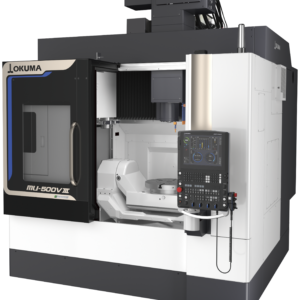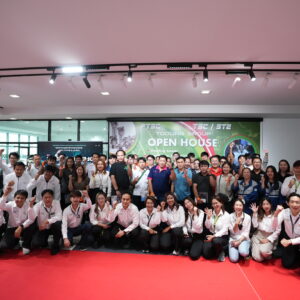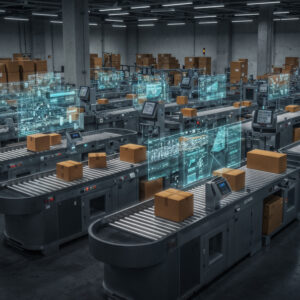Logistics 4.0 and Supply Chain Management 4.0 or smart supply chain management concern the various aspects of end-to-end logistics and supply chain management in the context of Industry 4.0, the Internet of Things, cyber-physical systems, emerging technologies, advanced data analytics and (semi-)autonomous decisions enabled by AI.

How Industry 4.0 is about more than just the smart factory or the implementation of technologies. We take a look at the essential elements of smart logistics, logistics management and supply chain management (SCM) in Industry 4.0, often called Logistics 4.0. If you need more than an overview of the essential elements of supply chain and logistics in the age of Industrial IoT, autonomous applications and cyber-physical systems you might want to check out on the use of robots and cobots in logistics, the role and evolutions of IoT (Internet of Things), cloud and advanced analytics in connected logistics or read about digital transformation in transportation and logistics first. It is clear that the various technologies, evolutions and challenges/solutions come into play when looking at Logistics 4.0, smart supply chain management and the digital supply chain as we do here. So, consider them part of this supply chain and logistic.
Automation and applications
Just as Industry 4.0 is a holistic given with a (partial) transfer of autonomy, intelligence and autonomous decisions to machines and to the edge, supply chain and logistics in Industry 4.0 is very similar, albeit with, on top of the overlaps, different applications, technologies, human and business aspects and elements.
There are many types of logistics and there are many definitions of logistics, ranging from the organization, planning and management of something complex, such as the logistics of setting up an event, to activities whereby many moving parts and processes are involved. It’s in the latter sense of moving things around in a business, supply chain and Industry 4.0 that we look at logistics here.
When we see logistics as essentially getting things from A to Z with the many intermediary steps and the components of the supply chain and intelligent and efficient movement across all these different steps in a holistic way and add the aspect of autonomy to it we quickly see what types of applications we really talk about: from driverless transportation to intelligent containers, smart warehousing, smart ports, smart shelves to the human and information exchange in all possible logistical chains.A major game-changer in this regard is also blockchain as we’ll see further with myriad use cases for the distributed ledger technology in transportation, smart ports, cross-border maritime shipping, retail, the list is long.
You can imagine that there are several other components in the supply chain and that without a digital supply chain Logistics 4.0 simply isn’t possible. Additional core tasks of smart logistics and supply chain management in the Industry 4.0 of logistics then become:

Adding the right level of autonomy and intelligence to logistics in order to make logistics as such more intelligent but mainly to make it more efficient, effective, connected and agile/flexible in order to meet the needs of a far more connected economy and an increasingly real-time economy.
Starting from the goals of industrial transformation in this holistic vision of which logistics and supply chains are part, strike the right balance between self-organizing and (semi-)autonomous systems and human planning, with also a focus on action and intelligence whereby the collaboration between man and machine (e.g. cobots in warehousing) and the end goals in function of changing ecosystem demands are crucial.
Transforming the ways of working and managing in line with Industry 4.0 deployments, realities and aspects such as data analytics, information ecosystems, required skillsets to manage it all and take the right decision in a changing environment of decentralization, fast decision making, the development of real-time capabilities and agility with a shift from centralized organizational and planning approaches to on-demand planning and managing uncertainty (core in digital transformation overall) in far less pre-determined logistical scenarios.
Connecting Logistics To The Future
Diving into the logistical revolution may seem intimidating, especially for those unfamiliar with IoT, AI and blockchain. Fortunately, there’s a wealth of information available on the internet, from white papers to videos, that explain the basics and provide examples of technology in action. When you’re ready to take that first step, remember: Much like connected logistics itself, it’s all about a safe, steady journey.






